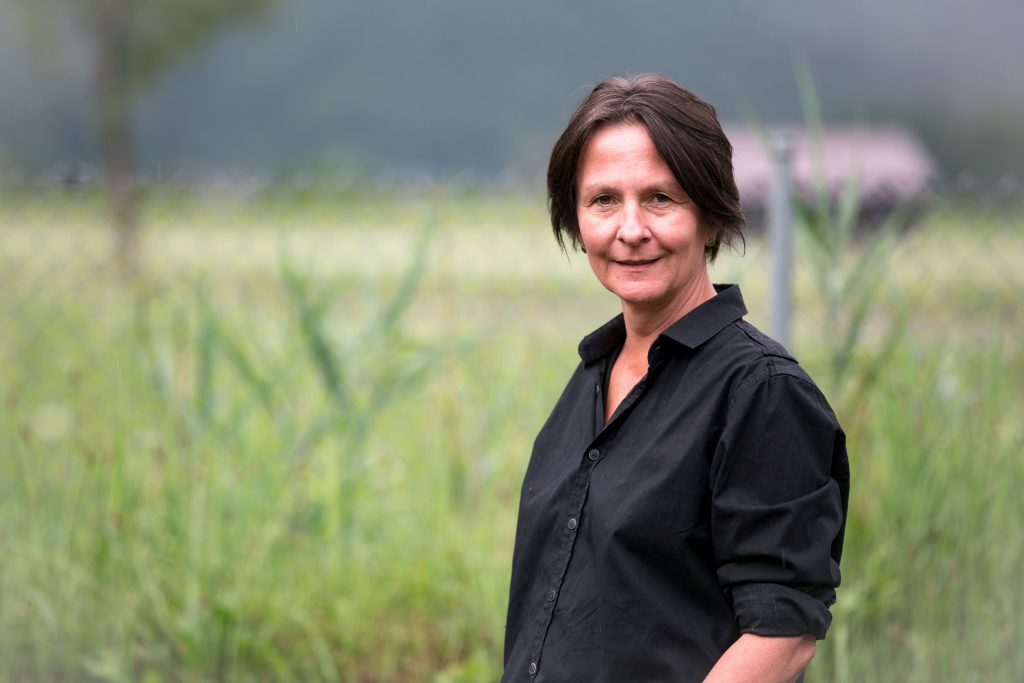
In December 2021, we at EPICUR had the great honour to speak with Professor Almut Arneth about her research and her participation in the second EPICamp, which focussed on the topics “Sustainability, material use and climate justice”.
You are a professor at KIT and associated with the Centre for Climate and Environment – what is your main research focus there?
My main research looking at what the role of terrestrial ecosystems is in what we would call the climate-landuse-biodiversity-nexus. So, we’re looking at “How does climate change impact terrestrial ecosystems, how does land use change impact terrestrial ecosystems, and how do the two interact?”.
In my team, we mostly work with modelling these interactions these days rather than measuring. I myself come from a more observational perspective, but I’ve been working with global and large-scale modelling for 20-odd years now.
As an environmental researcher, you participated in our second EPICamp, which centred around the topics “Sustainability, material use and climate justice”. Can you share your experience with us?
I enjoyed the event greatly, but unfortunately, I couldn’t attend all of the sessions. This is a problem with remote meetings: suddenly other things get in the way. But I greatly enjoyed the sessions I was able to attend. Nevertheless, I was deeply frustrated, though, that we could not meet in person.
Especially with this interdisciplinary format it would have been fun to talk to people in a coffee break or over lunch. Unfortunately, this is absolutely impossible in virtual meetings. Also, I think I’m just a bit tired of virtual meetings now.
What inspired you to nevertheless participate in the EPICamp?
I was nudged to participate by a colleague at BOKU. What ultimately convinced me though, was the interdisciplinary approach. I openly admit that in quite a few presentations not from my own field of research I couldn’t fully understand everything because I don’t know the methods. But I am still always intrigued to see the different approaches to similar issues and I find it quite stimulating to look outside my own little box.
What was your contribution to the event?
I was in the very fortunate position that I didn’t have to present anything, I could only listen to presentations and ask questions. But I did discuss it with some colleagues at my institute and we jointly decided to propose one of the sessions, which was chaired by Calum Brown. Regarding the presentations themselves, I chose to take a step back because the format is dedicated to younger researchers and I didn’t want to organise a session that the younger generation can prepare just as well.
What was the session about?
We had two people from our institute presenting on change-related issues and combining multifunctional landscapes following questions like “Given that the land area at our disposal is limited and we can’t easily grow more land, how can we make sure that we address the challenges this presents?”. We all want to eat, we want protected areas, we want to grow bioenergy crops, we might want to place solar panels on land as well, and all of these things are conflicting in that they require area. So, we need to find ways to combine these purposes and that’s what we’re trying to do.
A classic idea in multifunctional landscaping that is currently being discussed is called Agrivoltaics: putting solar panels on a field that aren’t directly on the ground, but on stilts so the area underneath the panels is still available for other purposes. Grazing is the easiest, but some people also argue that the solar panels could be combined with what people call “cash crops” like berries because the solar panels might even protect the berries from hail storms and such. But obviously if you’re putting solar panels on stilts, that is an additional investment, which costs money and needs resources as well.
Thank you for your time!
Interview by Josie Quehl
Shortly after our interview, Professor Arneth was awarded the 2022 Gottfried Wilhelm Leibniz Prize by the German Research Foundation to honour her research into ecosystems under the impact of global environmental change. The EPICUR alliance congratulates Professor Arneth on this tremendous achievement.
If you are an early career researcher with an interest in sustainability research or one of the other research areas covered in our EPIChallenges, we would like to invite you to attend one of our future EPICamps, or to apply for our EPICradle programme, which provides generous funding for international, interdisciplinary research projects led by early career researchers and focussing on the topics of our EPIChallenges: Sustainability, public health, and mobility, migration, and identity.
